Search Results
Showing results 1 to 20 of 53

Flashlight Play
Source Institutions
In this activity, young learners will explore light and darkness through flashlight play.

Share Your Planet
Source Institutions
In this cooperative game, learners devise strategies about sharing a small space with each other.
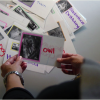
Sound Charades
Source Institutions
In this game, learners create flash cards with an image on one side (of an animal, for example) and the sound that animal makes on the other.

Slippery Coqui Eggs
Source Institutions
In this activity, multiple learners will use a game with ballloons to learn about coqui frog behavior.
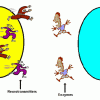
Synaptic Tag
Source Institutions
In this outdoor activity, learners review the parts of the synapse and their functions by playing a game.
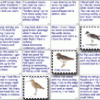
Bird Bingo
Source Institutions
In this activity, learners play bingo to learn about the diversity of birds. This game includes a warm-up lesson and "Full Flight" version.

Nowhere to Hide
Source Institutions
In this online simulation, learners can see adaptation and camouflage in action.

Work Up An Appetite
Source Institutions
In this activity, learners participate in fun movement activities while playing on a giant game board. Use this activity to get learners involved in physical activity.
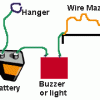
Motor Learning
Source Institutions
In this activity (26th on the page), learners construct an easy-to-build device and test motor learning.
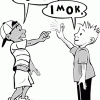
I M O K. U R O K.: You Can Make Sentences Without Words!
Source Institutions
Can you read the sentence "I C U"? Not really - but if you say each letter aloud, you'll say the simple sentence, "I see you." What if you change the "C" into a picture of an eye?

Neuron Chain Tag
Source Institutions
In this outdoor activity, learners play a game of Tag to discover how neurons attach themselves to each other to form a chain.
Wheel of Fitness
Source Institutions
In this fun activity for any size group, early elementary learners complete physical challenges while playing a game. Learners add new challenges to the "wheel of fitness" that they want to try.

Artificial Intelligence: The Intelligent Piece of Paper
Source Institutions
This activity explores what it means for a computer to be intelligent and introduces the topic of what a computer program is and how everything computers do simply involves following instructions writ

Population Study Game: Oh, Deer!
Source Institutions
In this activity, learners model a population of deer and see how the number of deer changes over time.

Backard Bioblitz Bonanza
Source Institutions
In this activity, learners will observe and record living things with in outlined outside space.

Whatta Web
Source Institutions
In this activity, learners play a game to simulate the food chain.

A Balancing Act
Source Institutions
In this plant science activity, learners role play as vegetables and weeds competing for nutrients.
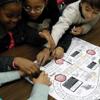
Endangered!
Source Institutions
While playing a game, learners discover how the Endangered Species Act works in the United States. Learners move along a game board by answering questions correctly.
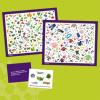
I Spy Nano!
Source Institutions
In this game, learners try to find nano-related objects on a game board. Learners investigate the different ways nano is in the world around us.

Eyewitness Game
Source Institutions
In this demonstration (9th on the page), learners explore eyewitness memory and how memories differ amongst individuals. While the rest of the group is minding their own business (i.e.
